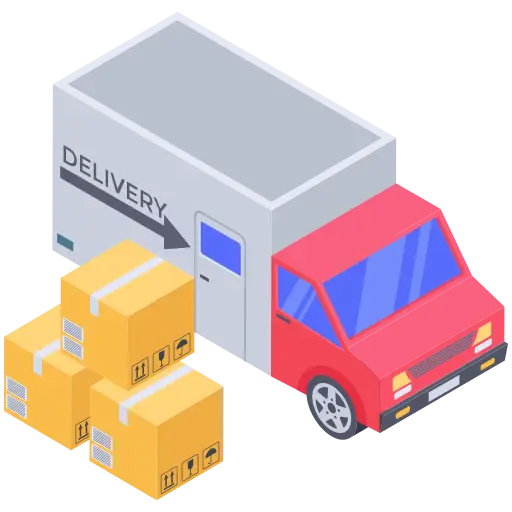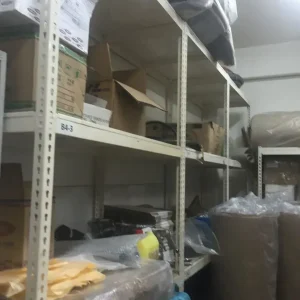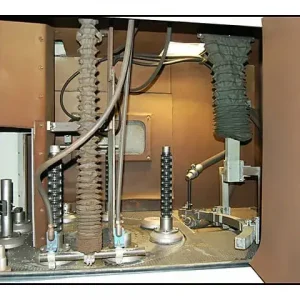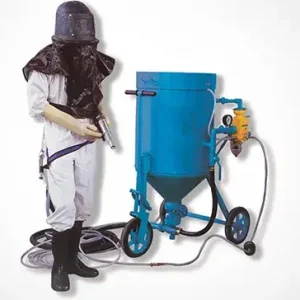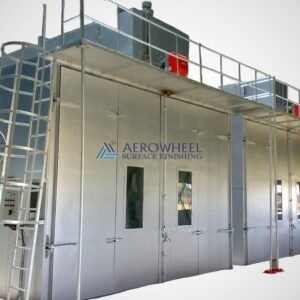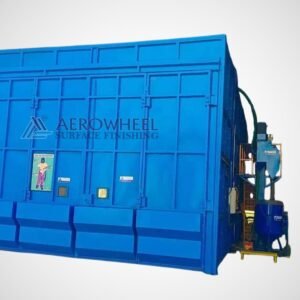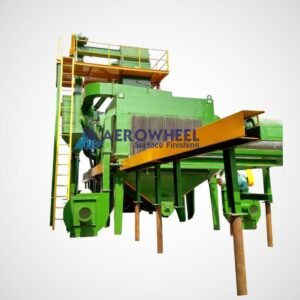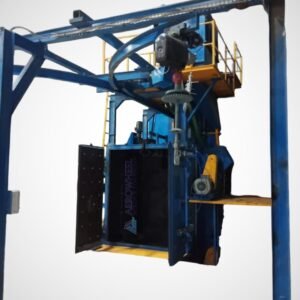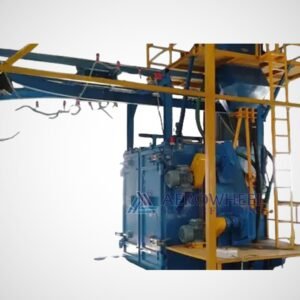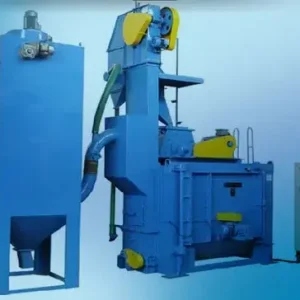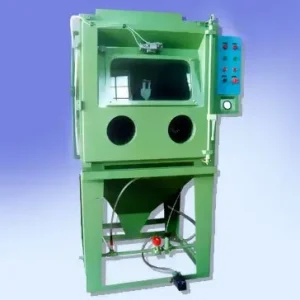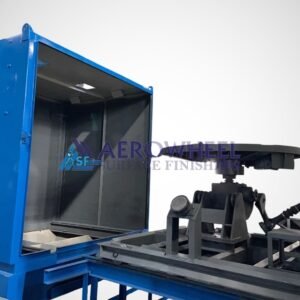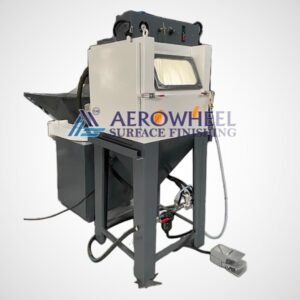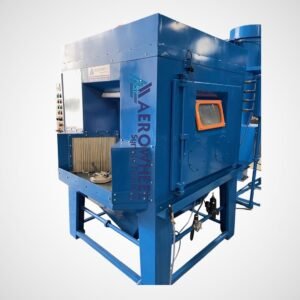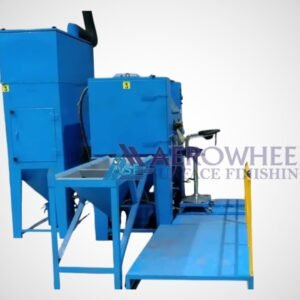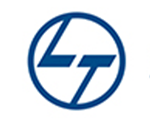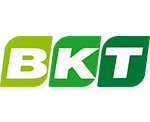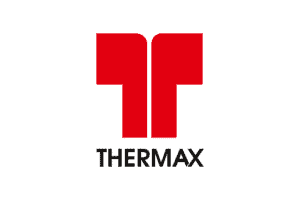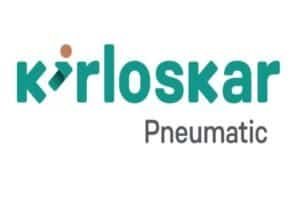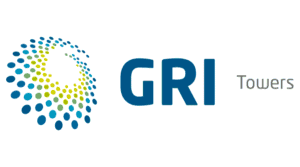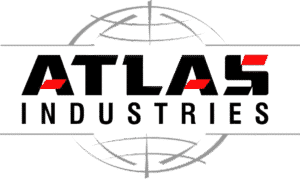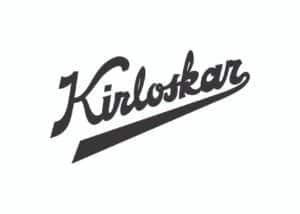Surface preparation is a critical step in manufacturing, restoration, and finishing processes. While dry blasting is more commonly used, wet blasting (also called vapor blasting or liquid honing) is rapidly gaining popularity due to its superior finish quality, safety, and environmental advantages.
In this article, we’ll explore the top benefits of wet blasting over dry blasting, and why more industries are making the switch.
What is Wet Blasting?
Wet blasting is an abrasive cleaning and finishing process that mixes abrasive media with water to form a slurry. This slurry is propelled at high speed onto the surface using compressed air. The water acts as a cushion, reducing friction and preventing damage, making the process smoother and safer than dry blasting.
1. Dust-Free Operation
✅ Major Advantage:
Unlike dry blasting, wet blasting completely eliminates airborne dust because the water traps dust particles on contact.
✅ Why it Matters:
- Safer working conditions for operators
- Cleaner work environment
- Easier compliance with health & safety regulations (e.g., OSHA, CPCB)
2. Superior Surface Finish
✅ Major Advantage:
Wet blasting produces a smooth, satin, and non-aggressive finish with no embedded grit or peening.
✅ Ideal For:
- Cosmetic components
- Stainless steel, aluminum, brass
- Precision parts where surface integrity matters
3. Gentle on Delicate Surfaces
✅ Major Advantage:
The water cushion softens the impact of abrasive particles, reducing the risk of:
- Warping
- Micro-cracking
- Dimensional changes
✅ Best For:
- Aerospace parts
- Engine blocks
- Electronics casings
- Surgical tools
4. Improved Operator Visibility
✅ Major Advantage:
With no dust cloud inside the cabinet, operators can clearly see the work area through the viewing window.
✅ Benefits:
- Higher accuracy
- Reduced rework
- Less eye strain for users
5. Reduces Heat Build-up
✅ Major Advantage:
The water in the slurry absorbs heat, keeping the workpiece cooler during blasting.
✅ Benefits:
- Prevents heat distortion in thin or soft materials
- Safer handling of thermally sensitive components
6. Minimizes Media Consumption
✅ Major Advantage:
Wet blasting extends the life of abrasive media because:
How to Reduce Paint Wastage Using a Spray Booth
Conquering the Grit: Why AeroWheel Surface Finishing Reigns Supreme in India's Shot Blasting Arena
- Less friction means slower breakdown
- Media is recycled through the slurry tank
✅ Result:
Lower operating costs and less frequent media replacement.
7. No Static Buildup
✅ Major Advantage:
Water naturally dissipates static electricity, which can be a problem in dry blasting environments, especially with plastic or rubber components.
8. Ideal for Cleaning and Degreasing
✅ Major Advantage:
Wet blasting simultaneously degreases and cleans components, especially when detergents or rust inhibitors are added to the water.
✅ Use Cases:
- Automotive restoration (engine parts, carburetors)
- Post-welding oxide removal
- Tool and die maintenance
9. Environmentally Friendly
✅ Major Advantage:
Wet blasting produces no dust emissions, uses non-toxic media, and reduces airborne contamination, making it a greener choice.
✅ Supports:
- Sustainable manufacturing
- Cleanroom or medical-grade production
- Urban workshop operations
10. Better Edge Retention and Tolerance Control
✅ Major Advantage:
Unlike dry blasting, wet blasting preserves sharp edges and tight dimensional tolerances, making it suitable for intricate or machined parts.
Quick Comparison Table
| Feature | Wet Blasting | Dry Blasting |
|---|---|---|
| Dust Control | ✅ Excellent | ❌ Poor |
| Surface Finish | ✅ Smooth/Satin | ❌ Rougher/Matte |
| Operator Safety | ✅ High | ❌ Lower |
| Delicate Component Handling | ✅ Safe | ❌ Risk of Damage |
| Media Life | ✅ Extended | ❌ Shorter |
| Visibility | ✅ Clear | ❌ Dust Obstructs |
| Static Build-up | ❌ None | ✅ Possible |
| Environmental Compliance | ✅ Easy | ❌ Requires Extra Systems |
Final Thoughts
While dry blasting may still be suitable for heavy-duty rust removal or aggressive stripping, wet blasting clearly leads the way in terms of precision, safety, and cleanliness. If your operations involve sensitive components, aesthetic finishes, or health-conscious work environments, investing in a wet blast cabinet is a smart and future-ready decision.


